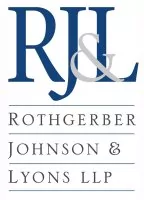Workplace misconduct investigations are often too difficult or too sensitive for internal staff members to conduct. Consequently, many companies have turned to outside professionals, including attorneys, to conduct such investigations. In 1998, as a result of an inquiry from an attorney named Vail, the Federal Trade Commission (FTC) issued an opinion that any outsider who is hired to investigate employee misconduct is a "consumer reporting agency" and subject to the disclosure requirements of the Fair Credit Reporting Act (FCRA).
This infamous "Vail Letter" created a firestorm throughout the professional employment services industry because human resources consultants and attorneys hired to investigate workplace misconduct were arguably governed by the FCRA. Despite criticisms as to the validity of the position taken in the Vail Letter and attempts to legislate around it, the document was the official government position until December 4, 2003. On that date, the Fair and Accurate Credit Transaction Act (FACT), by Section 611 of that law, amended the FCRA to exclude from its coverage certain communications involving employee misconduct investigations. This means that outside investigators of employee misconduct are no longer covered by the FCRA. However, the FACT Act has certain criteria that must be met in order to exempt investigative communications or reports from FCRA.
First, the communication and investigation must not be related to a credit investigation. Second, the communication must be made between the investigator and the employer in connection with an investigation of (1) suspected misconduct relating to employment, or (2) compliance with federal, state, or local laws and regulations; the rules of a self-regulatory organization (such as the SEC); or any preexisting written policies of the employer.
There may be a question as to whether it exempts investigations into employee misconduct that are not covered by preexisting written policies. This particular interpretation of the statute may require some explanation from the FTC in its regulations to be published.
In addition, FACT requires that after taking any adverse action based on an investigation, the employer must disclose a summary report to the employee. It is not clear from the statute what a "summary report" should look like. This may also require some interpretation by the FTC.
Practical Significance
It is clear that your company can hire your attorney to conduct employee misconduct investigations without running afoul of the FCRA. RJ&L offers such investigative services to our clients. We believe that using experienced labor and employment lawyers to conduct sensitive and high-level investigations is simply a good business practice. We have several experienced lawyers available to conduct these investigations. For more information, please feel free to contact us.
Michael D. Nosler is RJ&L's managing partner and has more than 25 years of experience in labor and employment law. He represents employers in all aspects of employment relationships, including defense of wrongful discharge, discrimination, and ERISA matters. He counsels employers in threatened union organizing campaigns and acts as management spokesman for companies in collective bargaining proceedings.
The content of this article is intended to provide a general guide to the subject matter. Specialist advice should be sought about your specific circumstances.


